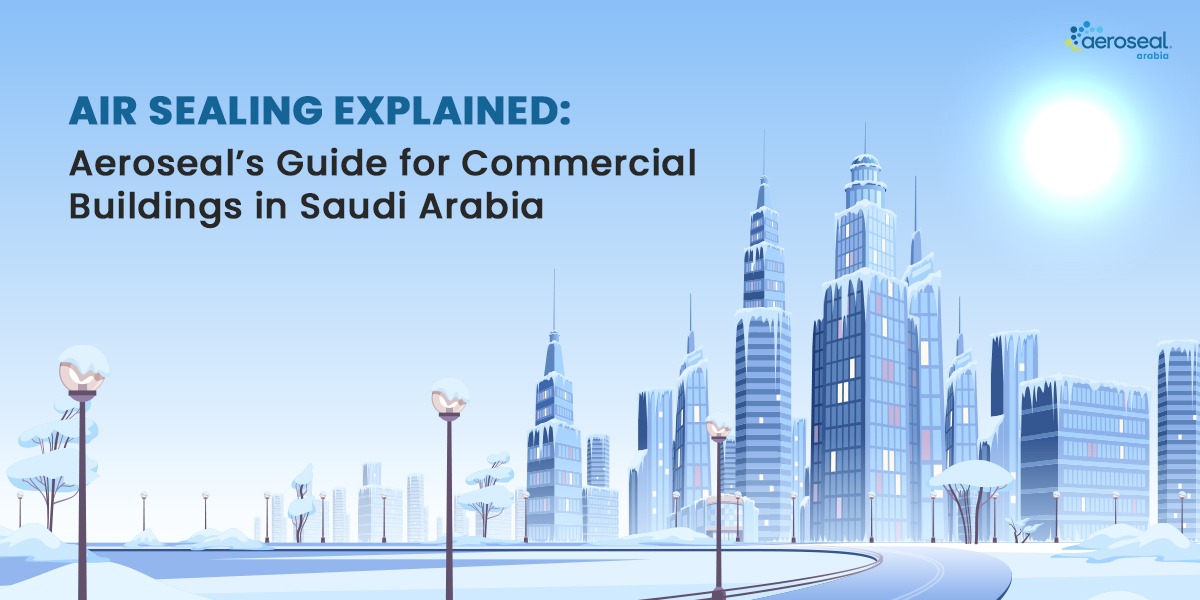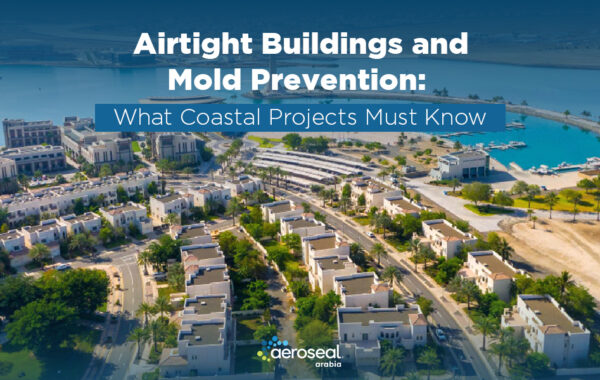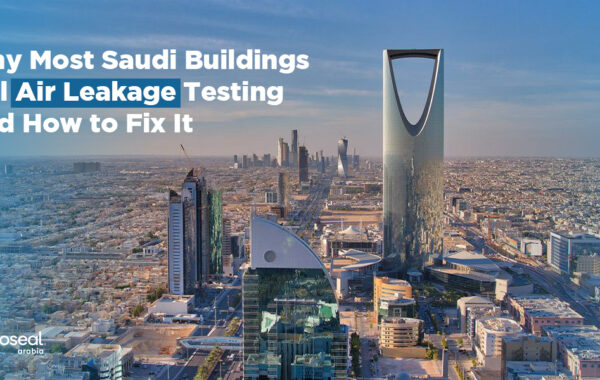
Air Sealing Explained: Aeroseal’s Guide for Commercial Buildings in Saudi Arabia
In Saudi Arabia’s commercial sector, energy efficiency and indoor comfort are becoming top priorities. From corporate offices in Riyadh to hospitals in Jeddah and universities in Dhahran, building operators face mounting pressure to reduce energy costs, meet Saudi Building Code standards, and align with the Kingdom’s Vision 2030 sustainability goals. One proven solution to these challenges is air sealing.
Air leakage is a silent issue that affects almost every commercial building. Tiny cracks, gaps around ducts, or leaks in the building envelope allow cooled air to escape and hot, dusty air to enter. This increases energy bills, reduces occupant comfort, and compromises indoor air quality. Air sealing, when done with advanced technologies like Aeroseal, directly addresses these problems, helping commercial buildings in Saudi Arabia operate more efficiently and sustainably.
What Is Air Sealing?
Air sealing is the process of eliminating unintended airflow between the inside and outside of a building. In commercial facilities, this typically involves:
- Preventing outside air (often hot, humid, or dusty in Saudi Arabia) from entering.
- Stopping conditioned indoor air from leaking out.
By controlling these flows, buildings achieve better thermal regulation, reduce strain on HVAC systems, and improve indoor comfort for employees, patients, students, or visitors.
Why Air Sealing Matters in Saudi Arabia
1. High Cooling Demands
With summer temperatures often exceeding 45°C, cooling accounts for more than 70% of energy consumption in many Saudi commercial facilities. Air leakage forces HVAC systems to work harder, leading to higher operational costs and premature equipment wear.
2. Dust and Sand Intrusion
Frequent dust storms can push fine particles into buildings through leaks. This not only lowers air quality but also increases cleaning and maintenance costs.
3. Moisture and Humidity in Coastal Areas
In cities like Jeddah and Dammam, moisture infiltration can lead to mold growth, corrosion, and damage to building materials serious issues for hospitals, schools, and government facilities.
4. Compliance with Saudi Building Code
The Saudi Building Code (SBC 602) places strict requirements on building envelope performance and energy efficiency. Air sealing helps commercial projects pass blower door tests and meet airtightness standards without costly delays.
Types of Air Leakage in Commercial Buildings
Duct Leakage
Air leakage in HVAC ductwork is one of the most common problems. Studies show that up to 30% of conditioned air can be lost through unsealed ducts, especially at joints and connections. In large facilities like universities or shopping centers, this can translate into massive energy waste.
Building Envelope Leaks
Leaks around windows, doors, ceilings, and wall penetrations (for pipes and wiring) compromise the building’s airtightness. These gaps not only raise energy use but also allow dust, allergens, and pollutants to infiltrate.
The Hidden Costs of Air Leakage
- Energy Loss: Commercial facilities spend significantly more on electricity when conditioned air escapes.
- Comfort Complaints: Uneven temperatures and drafts frustrate employees, patients, and visitors.
- Health Concerns: Leaks allow allergens, pollutants, and moisture to enter, impacting indoor air quality and occupant health.
- Operational Inefficiencies: Overworked HVAC systems require frequent repairs and replacements.
Traditional Air Sealing Methods and Their Limitations
Conventional methods such as caulking, weatherstripping, insulation, and manual duct taping are widely used but often fail in large commercial projects. Their limitations include:
- Short lifespan due to material degradation in Saudi’s extreme heat.
- Labor-intensive installation that disrupts operations in schools, hospitals, and offices.
- Limited access to hidden leaks within ducts or behind walls.
- Inconsistent results that don’t guarantee compliance with airtightness standards.
For modern commercial buildings, these methods alone are not sufficient.
Aeroseal: Advanced Air Sealing for Commercial Buildings
Aeroseal offers two breakthrough solutions designed specifically for sealing leaks in commercial environments:
1. Aeroseal Duct
- Blocks all registers and intakes to pressurize the HVAC system.
- Uses a computerized system to inject a non-toxic sealant into the ductwork.
- Sealant particles locate and close leaks, even those as small as a hairline crack.
- Process is completed in a few hours without demolition or major disruption.
- Provides a verified before-and-after leakage report for compliance documentation.
2. Aeroseal Envelope
- Uses a pressurized blower system to distribute a safe, water-based sealing mist throughout the building envelope.
- Seals leaks that are invisible or inaccessible through manual methods.
- Continuous monitoring ensures precise results, helping buildings pass blower door tests on the same day.
- Proven to reduce air leakage by up to 95%.
Benefits of Aeroseal Air Sealing for Saudi Commercial Facilities
- Energy Efficiency: Cuts energy bills by up to 30%, crucial for facilities facing high cooling demands.
- Regulatory Compliance: Ensures projects meet Saudi Building Code airtightness requirements.
- Improved Comfort: Eliminates drafts, hot spots, and temperature fluctuations.
- Healthier Indoor Air: Reduces dust, allergens, and moisture intrusion.
- Sustainability Goals: Supports Vision 2030 by lowering carbon footprints and promoting green building practices.
- Operational Savings: Extends HVAC lifespan, reducing maintenance costs.
Applications Across Saudi Arabia
Aeroseal technology is already transforming commercial buildings worldwide and holds immense potential in Saudi Arabia’s diverse sectors:
- Hospitals: Maintain sterile, controlled air environments.
- Schools and Universities: Ensure healthy learning spaces for students and staff.
- Government Facilities: Reduce energy bills and align with sustainability mandates.
- Corporate Offices: Boost employee productivity with improved comfort.
- Shopping Malls and Airports: Deliver consistent indoor climates for large crowds.
Conclusion
Air sealing is no longer an optional upgrade it is a necessity for modern commercial buildings in Saudi Arabia. By addressing energy loss, air quality, and compliance challenges, advanced solutions like Aeroseal help businesses and institutions save costs, improve occupant comfort, and meet national sustainability goals.
For facility managers, engineers, and contractors, investing in professional air sealing is one of the most impactful steps toward long-term building performance.



